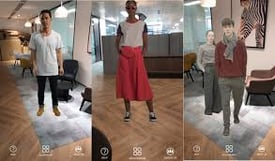How Augmented Reality Startups are Disrupting Retail
Augmented reality, or AR, has emerged as a huge booster for entertainment and marketing in recent years. However, startups are also building business models around AR to change the world of retail too. What impact will this have on our shopping experiences in the years to come?

Startups are Listening to Consumers
AR is hugely beneficial not only for marketers but also for consumers. Shoppers can buy more confidently with clearer angles and views of products in quasi-3D environments. In fact, the trend appears to be catching on, with 71% of shoppers reportedly keen to buy more if AR was a common factor in their browsing experiences.
However, many retail lines are unwilling to support AR at this time. Studies show that a slim majority – around 52% of retailers – are against the idea of using AR to support retail experiences. This, for consumers, is likely to be disheartening.
That, luckily, has not stopped some enterprises from pushing ahead with such innovations. From realistic product content to virtual shopping trips, small firms and innovators are striving to appeal to retailers who are still on the fence about AR’s worth in the long run.
What are Some Examples of Disruptors?
There is more than a handful of augmented reality startups already developing AR solutions for retail use. For example, Trillenium is working to make shoe shopping easier for home buyers. Those who have had problems finding footwear to fit from online purchases previously can use their AR engine to make a more precise choice.
Augment is another enterprise that strives to make AR more appealing to retailers. Their modus operandi surrounds the production of a platform where brand representatives can create AR displays for marketing pitches. This way, prospective storeholders will be able to see how stands and displays look when eventually set up.
Trax is a venture that’s looking at things in a slightly different way. They are helping retailers manage and process warehouse inventory easier than ever before. Users can gain spatial insight and work with virtual scaling to replenish warehouses more efficiently.
Crucially, it’s clear that AR innovations appear to be supporting both sides of the retail experience. Enterprises are working with augmented reality specifically to give more confidence to the consumer and more efficiency and control to the retailers themselves. There are multiple solutions on the rise.
AR is in Its Infancy
It’s worth noting that AR is still a long way from reaching its final form. It’s thought to be growing at a pace that will form an industry worth more than $50 billion by 2024. This is only supported by the fact that big brands in Apple and Facebook are already showing interest.
AR in retail could be a game-changer. But will retailers come around to the concept? In the meantime, investors and third-parties are already looking for startups through databases such as Fundz to help bring AR into the retail mainstream. Could the future of shopping convenience be just around the corner?
SOURCES
https://www.threekit.com/20-augmented-reality-statistics-you-should-know-in-2020